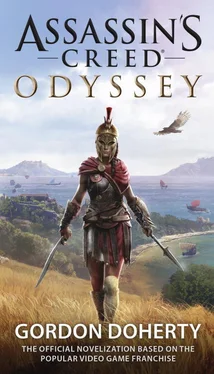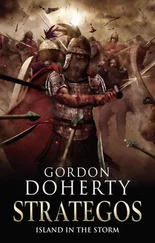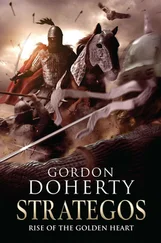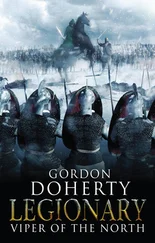“Come, Misthios,” Herodotos beckoned her as he set off along this promenade.
She glanced back to see Barnabas, Reza and a few crewmen from another boat engaged in a bet of sorts—that Ikaros could not snatch a ring from the finger of the other boat’s captain. Ikaros hopped from foot to foot, as if highly motivated to win the bet for the Adrestia men.
She smiled and left them to it. They went along the road, the long walls casting them in pleasant shade. An old beggar crooned at anyone who might listen: “Have we not learned of old Troy and of the Hittites and the Assyrians? Great walls bring mighty destroyers.”
Kassandra now noticed how crude the promenade walls were—hurried and ramshackle, composed of paving stones, rubble, broken pieces of architrave and the like, contrasting starkly with the shining marble splendor and fine battlements of the city proper which awaited at the far end.
Herodotos noticed her observations. “The Long Walls, as they are called, are ugly, yet beautifully expedient,” he explained. “They keep the Spartans—so unskilled at siege—out, and allow the grain to keep flowing in from the ships and to the city. You thought Perikles shrewd? Well, he is, in that sense. Sparta cannot break Athens, nor starve her.”
“That is Perikles’s strategy?” she mused. “Where is the glory in that?”
“Glory? Ah, ever the Spartan.” He laughed.
They reached a stretch of the promenade where either edge was thickly lined with shanty villages of shacks and tents, packed with grubby-faced, staring people. Soon, they were stepping over the prone forms of sleeping men, picking their way through packed crowds of families and whole communities. “I have never seen this many people crammed inside walls before,” she muttered.
“The countryfolk,” Herodotos whispered. “It is they who struggle most to follow Perikles’s wisdom. They had to abandon their homes out in the fields and valleys and come in here to live like paupers.”
The promenade steepened as it reached Athens proper, into wards of brightly painted villas, rising around the acropolis like worshippers. There was the sprawling agora, centered around a statue of Eirene, and of Ploutos—Peace and Wealth—an unlikely dream as things stood. This market hub was thronged with stalls, cattle, hawkers selling painted ostrich eggs, spices and one even holding up a blood-wet cow’s liver as if it were a prize. Everywhere, the streets were jammed with sweating bodies, the air thick with the odor of the unwashed, and the general hubbub sounded tense, hovering on the edge of argument. She noticed the sentries atop the high, fine battlements of the city’s curtain wall: Athenian hoplites, just like those she had faced and vanquished in the Megarid. They seemed occupied, pointing and discussing goings-on out in the countryside. What lay out there that caused them such concern?
She had absently wandered off to one side of the agora. Herodotos stopped her with a firm hand. “Not that way, Misthios,” he said, looking in the direction she had been headed with a mien of disgust. She saw the sad, shadowy compound resting at the far end of the agora. From within, a forlorn moan sounded. The cry of a man starved of hope. “That is the jail. That is where men are sent to be forgotten.”
The look on his face as he eyed the place caused her to shudder. But he quickly guided her in a different direction, affecting a cheerful smile. “No, this way. Up, onto the famous Pnyx , Misthios.” Herodotos led her toward the white-marble stairs that led up to the acropolis heights. “For that is where we will find our answers.”
The steps themselves were lined with guards and people too, bickering, arguing among themselves. The squabbling became louder—like a drone of hornets—as they reached the plateau at the top. They were greeted first by the silent glare of the bronze Athena statue, Kassandra almost cricking her neck as she gazed up in wonder at the colossal monument. Next, in an open square under the half shadow of the Parthenon, the Assembly was in full sway. The whole thing seemed so un-Spartan, so alien to Kassandra: thousands of men dressed in expensive robes, many bald heads gleaming in the sun, waving their arms in the air, howling in protest at one another. No… at one man. One poor man standing upon a plinth.
“There is the man we seek,” said Herodotos. “Perikles, General of Athens.”
Kassandra gazed up at the man. He certainly was no king, dressed simply in a plain robe, with wings of gray hair, a neatly trimmed beard and a broad nose. Herodotos’s age, but he carried himself like one who had not let his body go to seed quite as quickly.
“How long will we carry this fraud upon our shoulders?” roared the loudest objector—a red-haired, younger man with dark eyes and a pointed beard, who strode around the plinth’s base, punching a fist into his palm with every stride, throwing an accusing finger up at Perikles every so often. “Just as in the Korkyraean standoff, Perikles again excels as the master of deliberation, of hesitation, of unsatisfactory compromise. He sees merit in injuring allies and emboldening foes.”
“And that one marching around him like a scalded pig is Kleon the demagogue. He tells the people what they want to hear, even if it is fantasy. For all the enemies Perikles has faced in battle and in debate, he has never quite come up against a foe like this.”
Kleon raged on. “He has stripped all the island cities of their fleets, extorted from them their silver, and now treats the treasury up on this mount as his own! Look at how he favors the building of the Temple of Athena Nike over the welfare of his people. Is that not the behavior of a king ?” He spat the word as if it were poisonous. When the people erupted in agreement, Kleon flicked his hands up as if to fan the flames, nodding and yelling himself.
“I want the temple works to continue to maintain morale,” Perikles replied calmly once the clamor settled. “I seek to build no king’s palace here. Did I not order the stripping of gold from the villas—mine included—and shrines to fund our fleet?”
Kleon’s answer was merely a derisive snort as he sought to change tack. “Our fleet? Our mighty fleet which drains the treasury with its pitiful efforts—no more than nibbling at the coastline of the Peloponnesians? Following your calamitous efforts in the Megarid, you avoid true, noble battle on land, while our farms and our ancestral homes are reduced to nothing. We, born of the soil, must now watch it turn to ash.”
“To ash?” Kassandra frowned. Herodotos noticed, placed a hand on her shoulder and guided her gaze around, to look out from the acropolis and over the summer haze of the Attikan countryside. There, in the buckling heat, she saw the sheer silvery mountains that dominated most of the land, but in the precious stretches of flat, arable ground, she saw terrible things. She blinked twice to be sure her eyes were not deceiving her. They were not. In place of what had once been estates and granges of wheat, orchards of lemons and olives, there were black stains of fresh ash and recently toppled marble and brick. Dotted out there were patches of red—like pools of blood. Then she saw what they truly were.
Red-cloaked Spartans, camped and blocking landward access to the city. Watching, waiting, their spears winking in the glaring sun. Conquerors of the countryside now just seeking a way to beat the walls and overrun the city. Stentor? she mouthed, wondering if he was out there, leading the siege in place of the Wolf.
“I take no pleasure in seeing our countryside ravaged,” Perikles snapped back. “It is a necessary sacrifice. Don’t you see? We must not offer peace to the Spartans, for they will treat any such move like the bleat of a cornered lamb and it will only embolden them. Yet we cannot charge headlong into battle with them. Have they not proven time and again that their phalanx goes unmatched? The answer lies in stone. The Long Walls will save us: the boats will ferry in fish from the northern sea and grain from the coastal kingdoms. Let Sparta beat her fists upon our walls. They cannot win.”
Читать дальше












